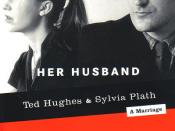Sylvia Plath's 'Collected Poems': A Review-Essay
At last, almost twenty years after her death on February 11, 1963, here are the Collected Poems of Sylvia Plath. It is a book that should have appeared much sooner. By 1982, its publication seems somehow anti-climactic: witness the rather cool response it has received from newspaper reviewers. To reread Sylvia Plath today is to realize, somewhat ruefully, how different the early 1980s are from the early 1960s. Schizophrenia, of consuming interest to a generation brought up on R. D. Laing's The Divided Self, is now regarded either as a disease to be controlled biochemically or as part of a larger cultural phenomenon: Lacanian criticism, for instance, is more interested in unmasking the verbal strategies of "sane" discourse than in dealing with individual psychosis. Again, the feminist revolution -- the only real revolution of our time -- has put the "marriage plus career" problem at the center of Plath's writing in a rather different perspective; it is not that the problem has been solved, but Plath's stated desire to have "millions of babies" and her scorn for the "spinster bluestockings" of Cambridge and Smith is not likely to strike a sympathetic chord in women undergraduates today.
Most important: Plath's rhetoric, at least the rhetoric of the poems she wrote prior to Ariel, now seems anything but revolutionary. Her controlled stanzas, heavy with assonance and consonance, her elaborate syntax with its inversions and subordinate clauses, her ingenious metaphors -- all these now look almost genteel, almost Victorian.
Nevertheless, Plath remains an extraordinary poet and The Collected Poems reveals a side of her we have not really seen before. In his brief introduction, Ted Hughes remarks: "Some time around Christmas 1962, she gathered most of what are now known as the `Ariel' poems in...


